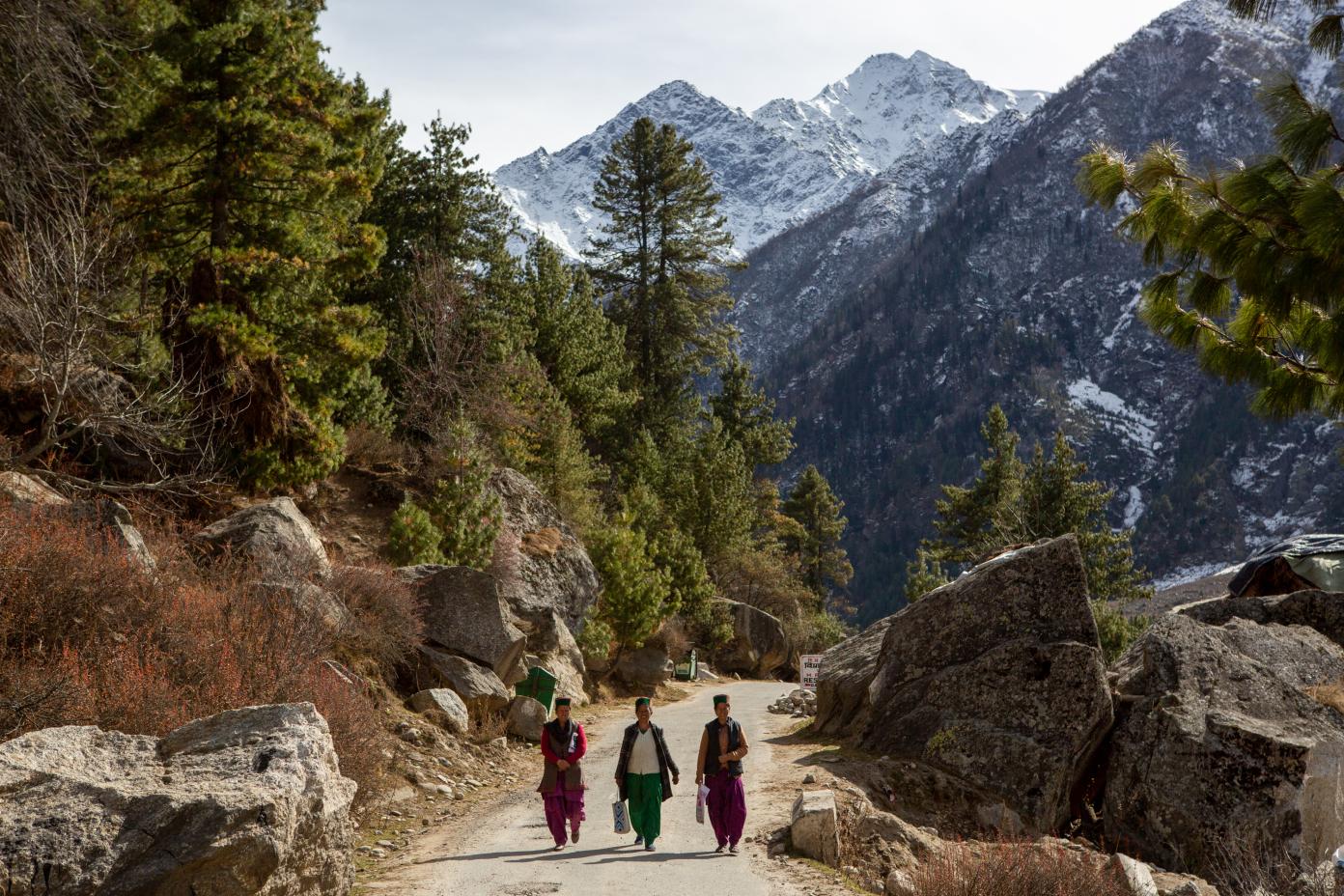In sheer numbers alone India’s achievement in the effort to control the COVID-19 pandemic is mind-boggling.
More than 960 million people have been vaccinated against the virus across 327,000 centres, serviced by more than a million health workers. More than 64 percent of the country’s population of nearly 1.4 billion people have received two doses through nearly 14 million vaccination sessions, 73 percent of them in rural and hard-to-reach areas.
To put it in perspective, India has administered more than 1.53 billion doses, more than the combined total achieved by the US, Brazil, Indonesia and Japan; only China has higher numbers (according to data available as of March 2022). The speed of administering those doses has been impressive--from 100 million to one billion from April to November 2021--an average of 3.75 million doses daily.
This remarkable feat was achieved by a team of health workers, government officials, doctors, and nurses working relentlessly over the past 12 months, along with enthusiastic participation of the people.
How does one of the world’s most populous countries mount such an effort? Its lessons may be valuable for other countries seeking to scale up COVID-19 vaccination programmes.
A key factor in India’s success is a digital platform CoWIN (Winning Over COVID-19), developed by the government. It is a cloud-based system that facilitates registration, immunizations and appointments, and issues digital vaccine certificates.
With the spread of the Omicron variant, the government has expanded vaccination coverage to include children in the 15-17 age group and already 56 million new beneficiaries have registered on CoWIN. There is also a provision for a third dose to people over the age of 60, health-care workers and frontline workers.
Given India’s size and population, it was a daunting task to plan the COVID-19 vaccination programme. So the government partnered with a number of agencies including UNDP for technical support and implementation of CoWIN.
Chalk a bit of it up to foresight, too. Over the past six years, India’s Ministry of Health and Family Welfare began digitizing the vaccine supply-chain network through the use of mobile technology. This digital platform is called the Electronic Vaccine Intelligence Network (eVIN) and was set up with initial funding support from Gavi, the Vaccine Alliance and implemented by UNDP.
A cadre of more than 50,000 public health workers who were already trained by the UNDP in using digital technology carried out vaccine-related transactions at all the public health facilities in the country. This gave the government the confidence that its health system would be able to buy and track COVID-19 vaccines while delivering them efficiently.
District officers were given the responsibility for managing the programme at the local level. And the entire vaccination programme was developed keeping in mind convenience; vaccines at any place or time.
CoWIN reflects the citizen-centric design of India’s vaccination programme. The portal has a simple user interface to register and select a convenient facility, with an option to choose the vaccine type. A digital vaccine certificate is delivered in a QR-code via a text message, or a printed copy at the facility.
Vaccinators use the app to verify registered beneficiaries, enter the vaccine doses and record any adverse events following immunization. People who do not have access to the internet or an identity card can walk into any health facility and get themselves registered on CoWIN.
In fact, immunization coverage in rural and hard-to-reach areas is higher than the national average. Real-time online dashboards allow programme managers to visualize and disaggregate demographic data on vaccine coverage, consumption, and waste.
New features are continuously being added to the app. Citizens can now link their passports and generate a certificate for international travel and can share their vaccination status on social media. Foreign nationals too can register on CoWIN to get vaccinated.
CoWIN is a powerful example of how digital technology can expand public health programmes, and reflects the strides India continues to make in digital technology for public services.
As part of its efforts to boost vaccine equity and accessibility around the world, the government of India has offered the CoWIN system as a public good. Since it's an open platform, it can be customized for different locations. This transfer of knowledge to other countries is being supported by the UNDP.
To emerge from the COVID-19 pandemic, we need to increase vaccination rates in low- and middle-income countries. It is our collective responsibility to ensure that no one is left behind. We are safe only when everyone is safe.

 Locations
Locations
